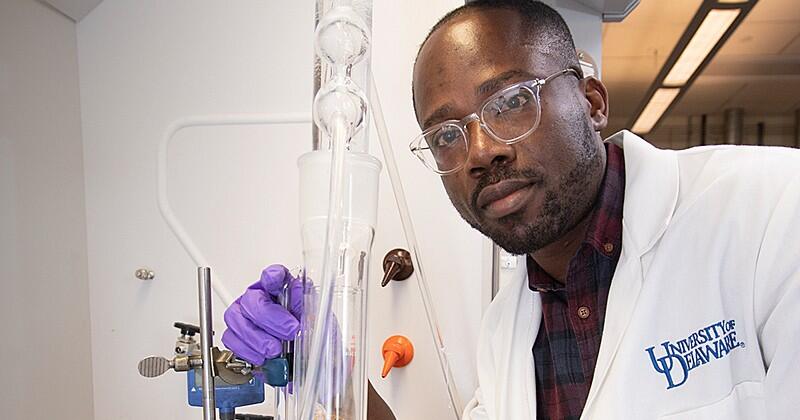Elvis Ebikade is eager to use his catalysis research to help solve global environmental challenges. His current focus is creating sustainable solutions for food waste.
UD doctoral student explores ways to convert food waste to fuels, chemicals
Editor’s note: This article appears in the new, all-digital issue of the University of Delaware Research magazine. This issue spotlights UD’s graduate students, an essential group of researchers who come from around the world, bringing fresh energy and new perspectives to their studies. It includes a special section on UD’s growing muscle in robotics and also reports on COVID-19 research with impact in Delaware, the nation and the world.
Elvis Ebikade, a fifth-year doctoral student studying chemical engineering at University of Delaware, says he thinks potato peels hold a lot of promise. Leveraging science developed at the University of Delaware’s Catalysis Center for Energy Innovation (CCEI), Ebikade is exploring ways to convert potato peels into valuable chemicals and fuels. He said this can contribute to environmentally friendly alternatives to materials derived from petroleum, while also diverting food waste from landfills.
Globally, 30% of food that is produced annually is wasted, according to the United Nations Food and Agricultural Organization. This number is expected to surge higher as global population increases.
Learn more: https://research.udel.edu/2020/12/01/changing-the-world/

